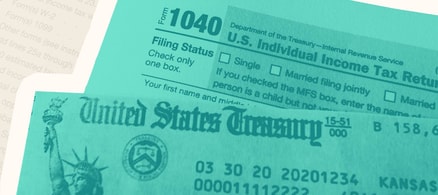1. Retirement planning
Retirement planning is, perhaps, the most well-known way to minimize taxes. You can open an individual retirement account (IRA) through a financial institution like a bank or insurance company to make tax-deferred investments. You might also have access to employer-sponsored, tax-advantaged accounts such as the traditional 401(k) and Roth 401(k). Individuals can contribute up to $23,000 in 401(k) accounts in 2024. If you are aged 50 or over, you can make an additional catch-up contribution of $7,500.
These accounts are popular and relatively simple. However, a tax planning expert could help you dig deeper and uncover the benefits of other retirement planning tools, such as a Health Savings Account. These accounts have a triple tax advantage by reducing taxable income, enabling tax-free withdrawals for qualified medical expenses and allowing investment returns to grow tax-free.
Meet Your Retirement Goals Effortlessly
The road to retirement may seem long, but with WiserAdvisor, you can find a trusted partner to guide you every step of the way
WiserAdvisor matches you with vetted financial advisors that offer personalized advice to help you to make the right choices, invest wisely, and secure the retirement you've always dreamed of. Start planning early, and get your retirement mapped out today.
Get Started2. Investing
The government takes a carrots-and-sticks approach to encourage investments into the national economy. That makes investing a great way to minimize taxes while building wealth.
On the carrots side, your tax liability for long-term capital gains could be as low as 0%, depending on your income. Investors can also use some of their losses to offset their capital gains and minimize their taxes every year. This strategy is called tax-loss harvesting.
On the sticks side, short-term capital gains tax can be between 10% to 37%, depending on your income. Effectively, the system is designed to encourage holding investments for longer periods of time.
However, duration isn’t the only factor. An investment adviser could help you implement a sophisticated investment strategy that minimizes taxes.
3. Real estate
Investing in real estate is also encouraged by the tax system. For instance, Section 1031 of the Internal Revenue Code allows real estate investors to defer taxes on capital gains by exchanging one investment property for another.
Investors can also enjoy certain tax benefits if they invest in locations that the government has deemed “Opportunity Zones.” The tax benefits of investing in these zones — which is meant to encourage investment in low-income and undercapitalized communities — increase the longer the investment is held.
This 2 Minute Move Could Knock $500/Year off Your Car Insurance in 2024
Saving money on car insurance with Bestmoney is a simple way to reduce your expenses. You’ll often get the same, or even better, insurance for less than what you’re paying right now.
There’s no reason not to at least try this free service. Check out BestMoney today, and take a turn in the right direction.
Get Started4. Relocating
Moving to another state or country is probably the most straightforward way to minimize taxes. For instance, Texas has no state income tax, while California’s top marginal tax rate could be as high as 13.3%.
An analysis by the Tax Foundation found a correlation between state migration patterns and individual tax policies from 2020 to 2021.
Put simply, moving to save taxes isn’t uncommon and could be a potential part of your tax avoidance strategy.
5. Owning a business
Owning a business has several tax advantages. The most well-known advantages are tax deductions for business expenses such as office supplies and vehicles. But the list also includes niche advantages related to the way capital gains are treated when you sell shares of a business, the way you pay yourself as an owner or the way you pay your employees.
Altogether, owning a business can be fairly tax-efficient if you work with an expert to craft a plan.
Sponsored
Follow These Steps if you Want to Retire Early
Secure your financial future with a tailored plan to maximize investments, navigate taxes, and retire comfortably.
Zoe Financial is an online platform that can match you with a network of vetted fiduciary advisors who are evaluated based on their credentials, education, experience, and pricing. The best part? - there is no fee to find an advisor.







